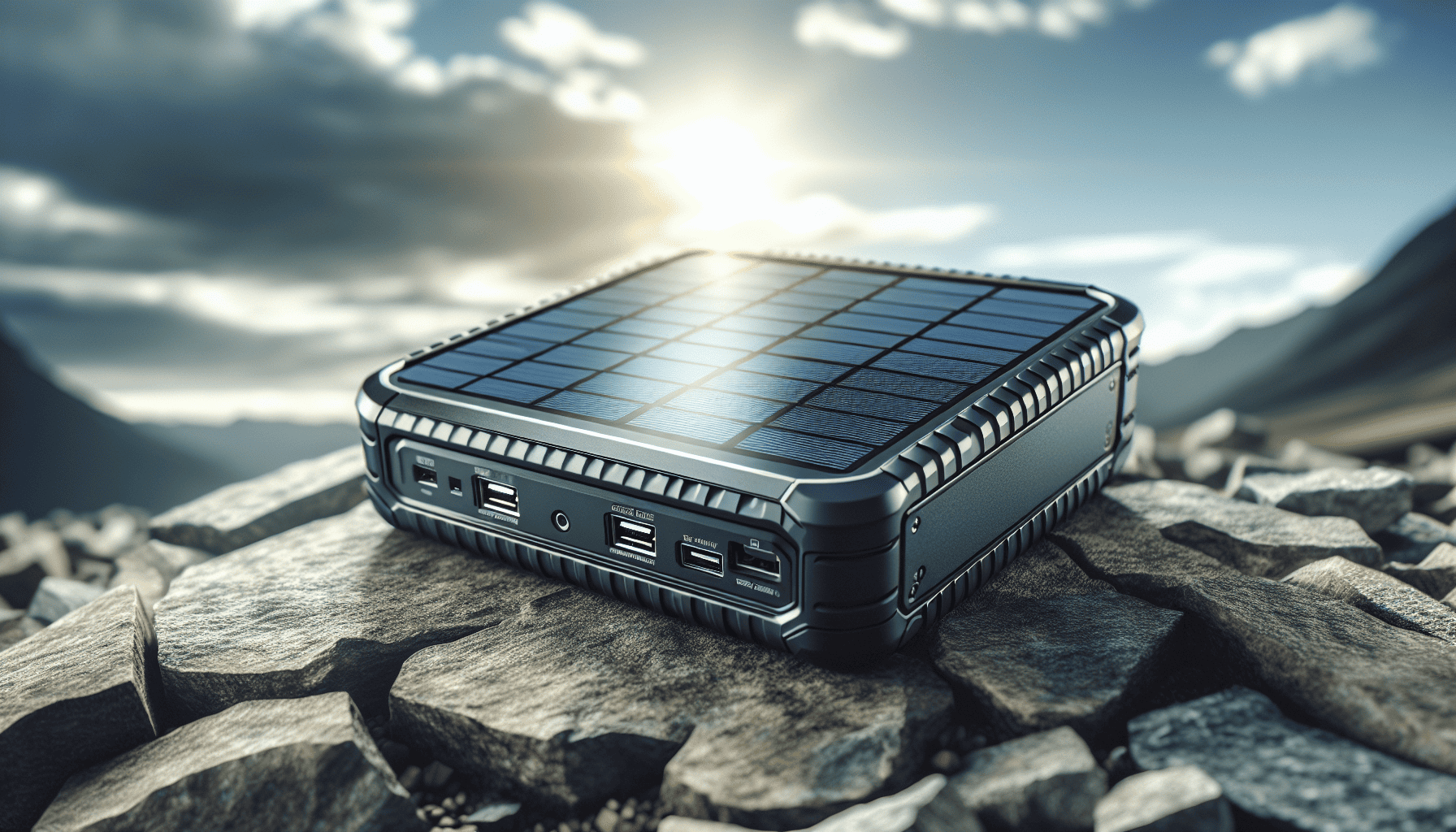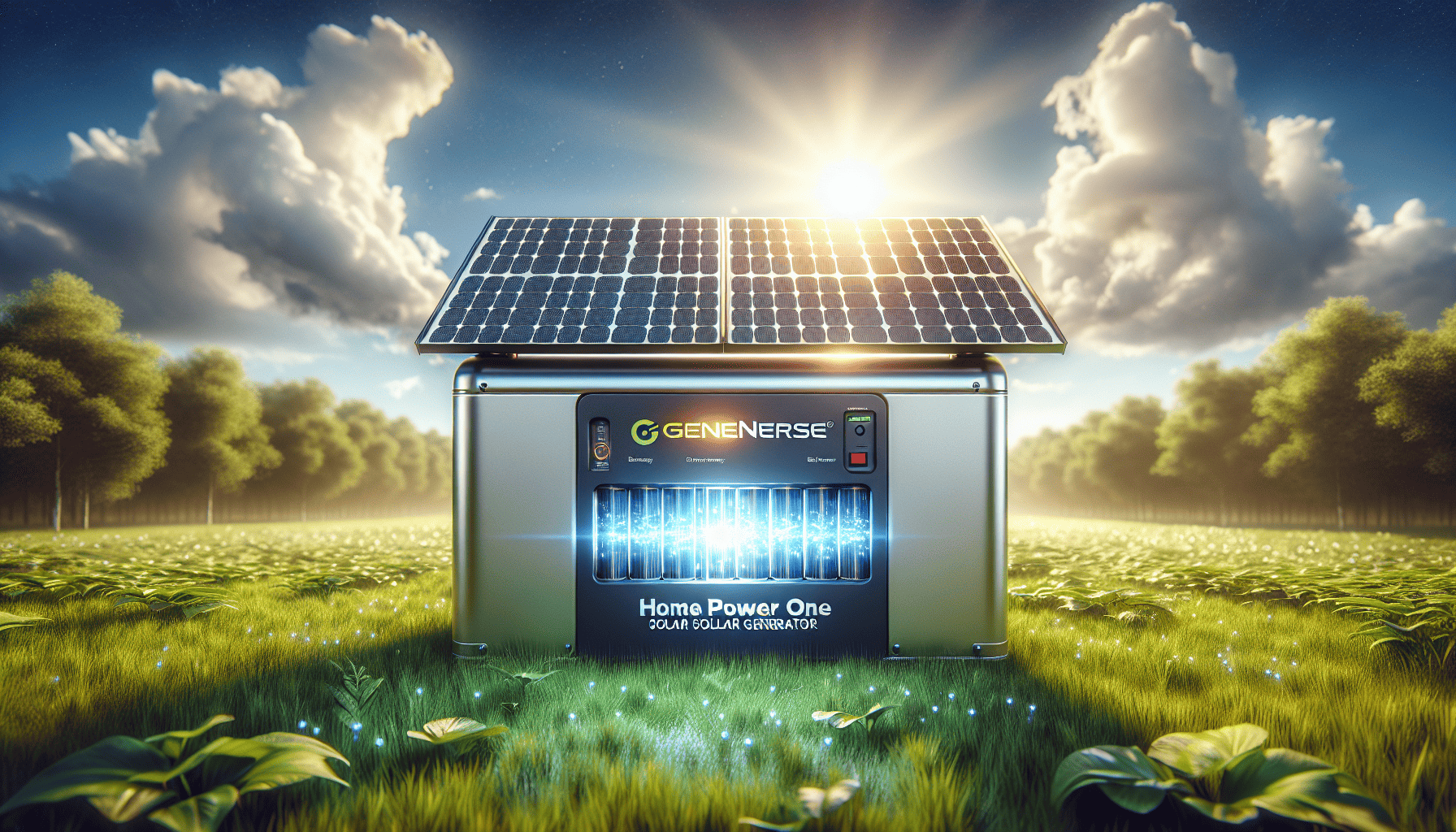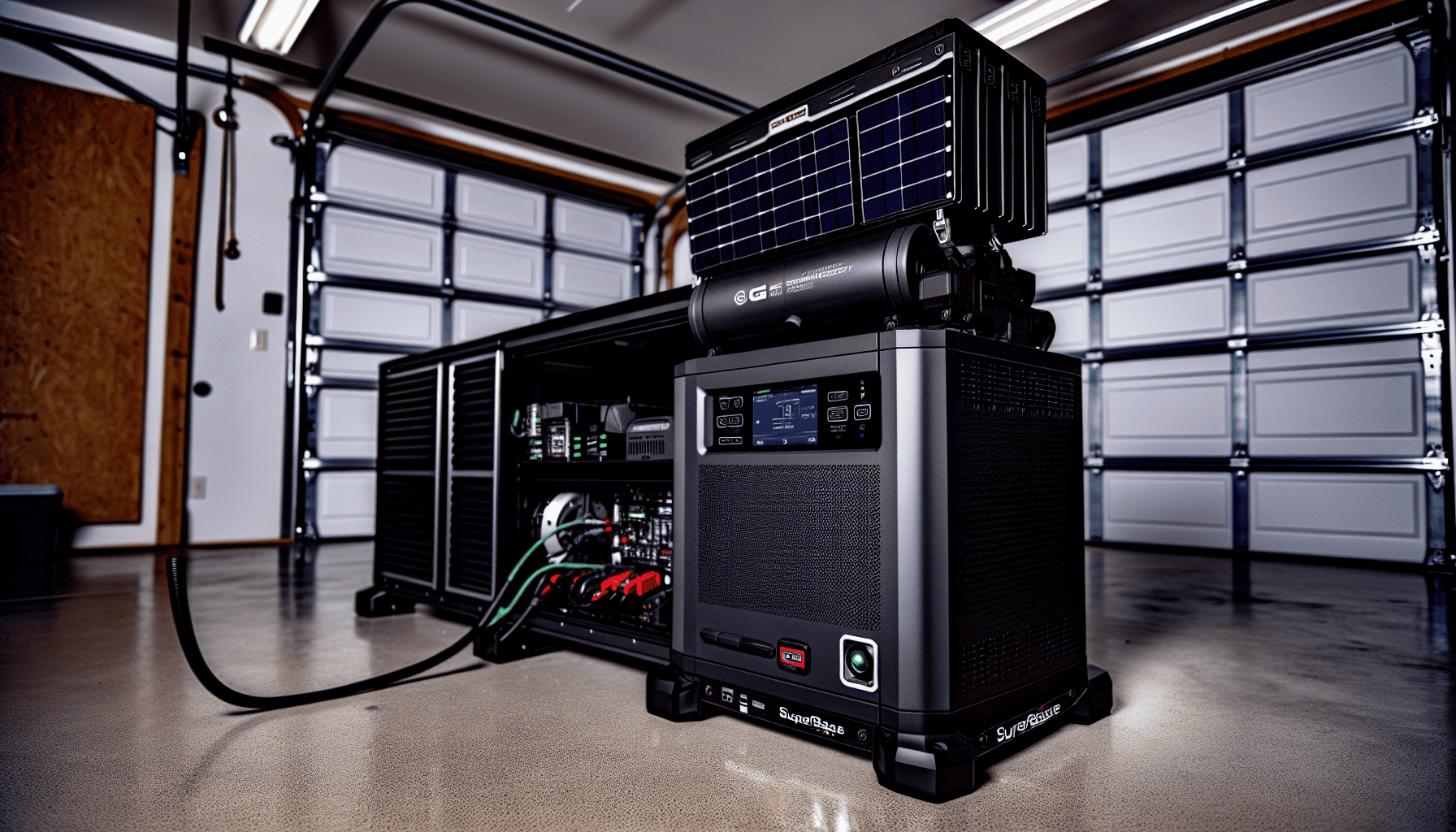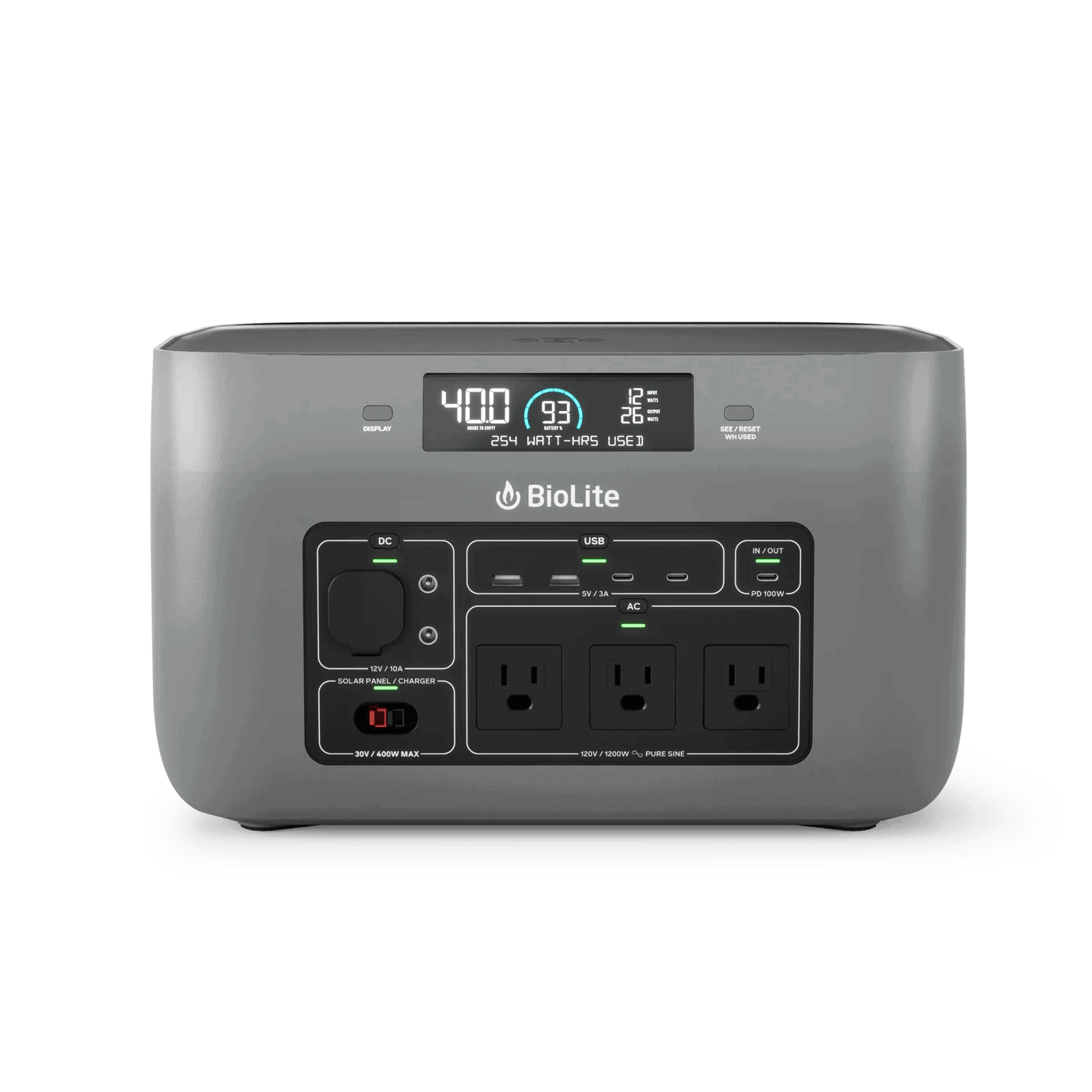Best Solar Generators of 2024 Reviewed: Solar Power Unleashed
Have you ever tried to deal with an extended power outage? Growing up in central Illinois, it happened plenty of times when severe storms would blow through. Access to a reliable power source would have been a game-changer.
Have you ever wondered how to harness the sun’s power when the lights go out or you embark on an outdoor adventure? Solar generators aren’t just gadgets; they’re essential tools that provide power precisely when you need it.
In this guide, we’re going to delve into the best solar generators of 2024, focusing on their performance and the value they bring. We’re going to explore their unique features, assess their performance, and see how they stack up against each other.
Our goal? To give you all the details you need to make an informed decision when choosing the right solar generator for your needs. So, whether you’re gearing up for a camping trip or preparing for a power outage, you’re in the right place!

Quick Snapshot of the Best Solar Generators
A quick glance at the solar generator market will reveal a variety of options, each tailored for a specific need or budget. Here are the top contenders for best solar generators in 2024:
Best Value for Money: Anker 757 Solar Generator. This generator offers a high-capacity battery and built-in solar panel, coupled with multiple charging ports, rendering it a versatile choice for modest energy needs.
Best Solar Generator for Camping: Yeti 1500X. Designed specifically for outdoor adventures, the Yeti 1500X is durable, portable, and provides a reliable power source for camping energy needs.
Best Overall Solar Generator: Geneverse HomePower One. This generator stands out with its clean, reliable power and large capacity, catering to a variety of applications.
Best for Whole-House Backup Power: SuperBase V6400. With its powerful capacity and expandable system for increased output, this generator is the go-to solution for whole-house backup power.
Best High-Capacity Battery: BioLite BaseCharge 1500. Boasting a high-capacity battery and eco-friendly solar charging capabilities, this generator is ideal for power-hungry users.
We’ll explore the unique selling points of each of these solar generators in the following sections.
Best Value for Money

1. Anker 757
The Anker 757 Solar Generator offers great value for money. Here are its key features:
- High-capacity battery for easy charging, even during power outages
- Comparable to top-tier brands like Jackery in terms of battery capacity and power output, making it a great alternative to a Jackery solar generator
- Built-in solar panel and multiple charging ports for increased versatility
- Lacks app management features and has a limited DC input capacity Despite these minor drawbacks, it still offers the best value for money in its category.
Product Pros
Product Cons
Price:$799.00
Specifications:
- Battery Capacity: 1,200-Wh LFP battery
- Power Output: 1,500W inverter with six AC ports
Rating:
- Price: 4/5
- Design: 4/5
- Performance: 4.5/5

2. Yeti 1500X
The Yeti 1500X makes for an ideal camping companion! Designed by the reputable Goal Zero, it’s built for the outdoors with its durable and portable design. It can effectively power your camping essentials, thanks to its reliable power output.
It does come with a few limitations. You cannot charge it with both AC and solar at the same time, and it takes quite a while to charge. Despite these, it holds its ground as the best solar generator for camping.
Product Pros
Product Cons
Price: $1,799.95
Specifications
- Battery Capacity: 1,516-Wh lithium-ion NMC battery
- Power Output: Maximum connected load of 2,000W
Rating:
- Price: 4/5
- Design: 4.5/5
- Performance: 4/5

3. Geneverse HomePower One
Striking a perfect balance between capacity, reliability, and eco-friendliness, the Geneverse HomePower One stands as the top overall solar generator. Solar powered generators, like this one, can even power a refrigerator, which is a testament to its formidable capacity. The availability of multiple power outputs further enhances its versatility.
That said, it is dependent on weather conditions for solar charging, and its capacity might not suffice for power-intensive applications. Despite these limitations, it offers the best overall performance in its category.
Product Pros
Product Cons
Price: $779.00
Specifications
- Battery Capacity: 1,002 watt-hour (Wh)
- Power Outputs: 2 USB-C outputs with PD 18W, 1 USB-A with 5V/2.4A, 1 USB-A with Qualcomm Quick Charge 3.0, and 1 car outlet with 12V/10A
Rating:
- Price: 4/5
- Design: 4.5/5
- Performance: 4.5/5

4. SuperBase V6400
For providing backup power during a power outage for your entire house, the SuperBase V6400 is an absolute powerhouse. Its impressive capacity, coupled with fast charge times, ensures that you’re never left in the dark. It’s also equipped with multiple AC outlets and USB ports, catering to a wide array of power needs.
However, its substantial cost and considerable size might discourage some potential buyers. Regardless, if you’re searching for a comprehensive backup power solution for your entire home, this is the top choice.
Product Pros
Product Cons
Price: $4,499
Specifications
- Battery Capacity: 6,438 watts
- Charge time: 1 hour (AC), 3 hours (solar)
Rating:
- Price: 3/5
- Design: 3.5/5
- Performance: 5/5

5. BioLite BaseCharge 1500
Ideal for power-hungry users, the BioLite BaseCharge 1500 distinguishes itself with its high-capacity battery. It also boasts multiple charging ports, catering to a variety of devices. Plus, its eco-friendly design allows for recharging via solar panels. However, its recharge time is quite slow. Despite this, it remains a top choice for those in need of a high-capacity battery.
Product Pros
Product Cons
Price: $1,359.20
Specifications:
- Battery Capacity: 1521 Watts
- Recharge Time: 13.5 hours (AC Adapter), 8 hours (AC Adapter + USB-C), 4 hours (Solar Panels 100×4)
Rating:
- Price: 4/5
- Design: 4/5
- Performance: 4.5/5
Choosing Your Solar Generator: Factors to Consider
Here are the key factors to guide your decision-making process.
- Capacity of the solar generator — how much power it can deliver, usually measured in watts.
- Your budget — the most expensive generator may not necessarily be the best for you.
- Generator output — can handle the power surge needed to start up some devices.
- Portability — a bulky generator and solar panels might not be the most convenient option in such cases.
- Expandable — allows you to add more batteries and/or solar panels to increase storage capacity, enabling you to power more devices or appliances.
Summary
Solar generators are a versatile and eco-friendly solution for various power needs. Whether you’re seeking a high-capacity battery, a portable generator for camping, or a whole-house backup power solution, there’s a solar generator out there that fits the bill.
By considering your power needs, budget, and the generator’s capacity, output, and portability, you can find the perfect fit. You can ensure that you and your family always have access to a reliable power source. Harness the power of the sun and power up your life with the right solar generator!
Frequently Asked Questions
What is the best solar generator for off-grid living?
The Ecoflow Delta Pro, Jackery Portable Power Station Explorer, and EcoFlow Solar Generator DELTA 2 Max are some of the best solar generators for off-grid living due to their high performance and reliability. The Bluetti EP500 and Goal Zero Yeti 3000X Power Station are also popular choices in the market for off-grid living.
Is it worth buying a portable solar generator?
Yes, it’s worth buying a portable solar generator for its unlimited energy source, low maintenance costs, and suitability for camping, small homes, and emergency use.
What is the capacity of a solar generator and how can I tell if it meets my power needs?
The capacity of a solar generator indicates how much power it can deliver, typically measured in watts. You can determine if it meets your power needs by looking at the run time, which tells you how long it can power a device. For instance, you can test it with energy loads that match your specific power requirements.
Disclaimer: The views and opinions expressed in this post are my own and do not reflect the official policy or position of the US Marine Corps, the Department of Defense, the U.S. Government, or any associated corporate entity.






